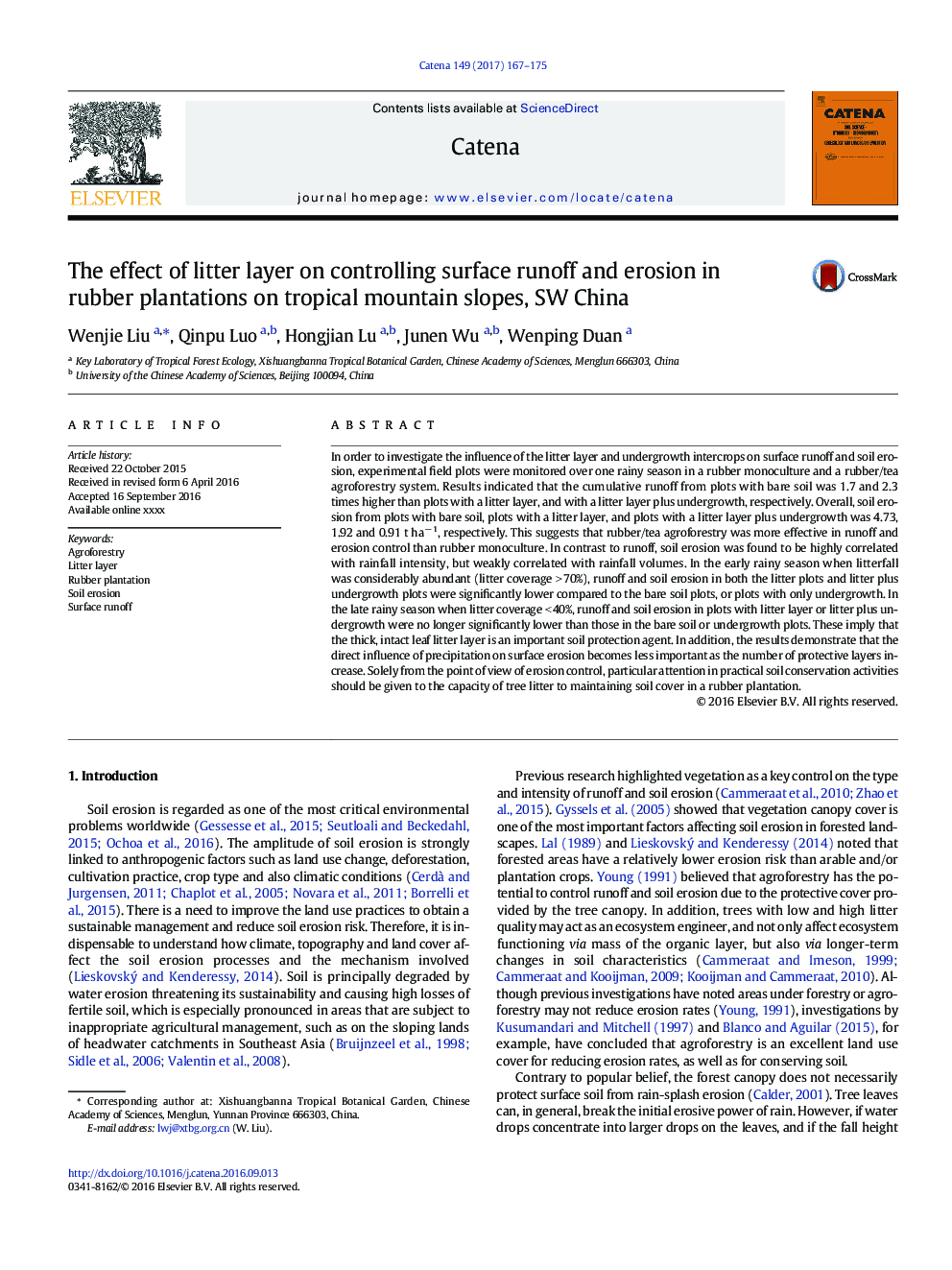| Article ID | Journal | Published Year | Pages | File Type |
|---|---|---|---|---|
| 10997824 | CATENA | 2017 | 9 Pages |
Abstract
In order to investigate the influence of the litter layer and undergrowth intercrops on surface runoff and soil erosion, experimental field plots were monitored over one rainy season in a rubber monoculture and a rubber/tea agroforestry system. Results indicated that the cumulative runoff from plots with bare soil was 1.7 and 2.3 times higher than plots with a litter layer, and with a litter layer plus undergrowth, respectively. Overall, soil erosion from plots with bare soil, plots with a litter layer, and plots with a litter layer plus undergrowth was 4.73, 1.92 and 0.91 t haâ 1, respectively. This suggests that rubber/tea agroforestry was more effective in runoff and erosion control than rubber monoculture. In contrast to runoff, soil erosion was found to be highly correlated with rainfall intensity, but weakly correlated with rainfall volumes. In the early rainy season when litterfall was considerably abundant (litter coverage > 70%), runoff and soil erosion in both the litter plots and litter plus undergrowth plots were significantly lower compared to the bare soil plots, or plots with only undergrowth. In the late rainy season when litter coverage < 40%, runoff and soil erosion in plots with litter layer or litter plus undergrowth were no longer significantly lower than those in the bare soil or undergrowth plots. These imply that the thick, intact leaf litter layer is an important soil protection agent. In addition, the results demonstrate that the direct influence of precipitation on surface erosion becomes less important as the number of protective layers increase. Solely from the point of view of erosion control, particular attention in practical soil conservation activities should be given to the capacity of tree litter to maintaining soil cover in a rubber plantation.
Related Topics
Physical Sciences and Engineering
Earth and Planetary Sciences
Earth-Surface Processes
Authors
Wenjie Liu, Qinpu Luo, Hongjian Lu, Junen Wu, Wenping Duan,
